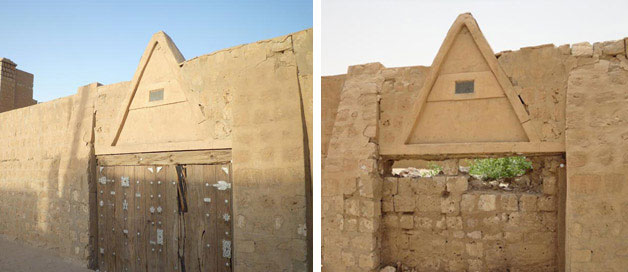ICC finds Malian extremist guilty of war crime in destroying historic sites in Timbuktu
| Publisher | UN News Service |
| Publication Date | 27 September 2016 |
| Cite as | UN News Service, ICC finds Malian extremist guilty of war crime in destroying historic sites in Timbuktu, 27 September 2016, available at: https://www.refworld.org/docid/57eb6f84412.html [accessed 21 May 2023] |
| Disclaimer | This is not a UNHCR publication. UNHCR is not responsible for, nor does it necessarily endorse, its content. Any views expressed are solely those of the author or publisher and do not necessarily reflect those of UNHCR, the United Nations or its Member States. |
27 September 2016 - The International Criminal Court (ICC) today found a Malian Islamist accused of destroying historical and religious monuments in the fabled city of Timbuktu guilty in the first-ever prosecution of the destruction of cultural heritage as a war crime.
The judges sentenced Ahmad Al-Faqi Al-Mahdi, a member of a jihadist group linked to Al Qaeda, to nine years in prison for committing a war crime by deliberately destructing in 2012 nine mausoleums and the secret gate of the Sidi Yahia mosque in the UN Educational, Scientific and Cultural Organization (UNESCO) World Heritage site of Timbuktu in Mali, the ICC said in a press release.
"The decision of the International Criminal Court is a landmark in gaining recognition for the importance of heritage for humanity as a whole and for the communities that have preserved it over the centuries. It also supports UNESCO's conviction that heritage has a major role to play in reconstruction and peace building," said Irina Bokova, the Director-General of UNESCO.
This past month, Mr. Al-Mahdi pleaded guilty to the charges, which consisted in attacking 10 historic and religious monuments in Timbuktu between around 30 June 2012 and 11 July 2012. All sites but one are on the UNESCO World Heritage List.
The case comes amid growing concern about attacks by Islamists on cultural and religious monuments in the Middle East and North Africa, including, among others, in the ancient cities of Bosra and Palmyra in Syria, and in Nimrud and Nineveh in Iraq.
UNESCO highlighted today that the "historic" decision, a first under the ICC's founding Rome Statute, is a "crucial step to end impunity for the destruction of cultural heritage."
The door of the Sidi Yahia Mosque in Timbuktu, Mali, before and after it was attacked. Photos: UNESCO/Lazare Eloundou Assomo; Ministère de la culture du Mali/DNPC
"It confirms earlier decisions taken by international jurisdictions and it amplifies them in a judgment entirely devoted to the destruction of cultural heritage. This is a major step for the strengthening of international justice and towards peace and reconciliation in Mali," UNESCO added.
The agency also pointed out that the case "reminds us all of how heritage protection has become a major security issue, which cannot be delinked from the protection of human lives."
"Deliberate attacks on culture have become weapons of war in a global strategy of cultural cleansing seeking to destroy people as well as the monuments bearing their identities, institutions of knowledge and free thought," UNESCO said.
According to Ms. Bokova, immediately after the destruction in 2012, UNESCO alerted the international community and seized the ICC to ensure that such crimes do not go unpunished.

